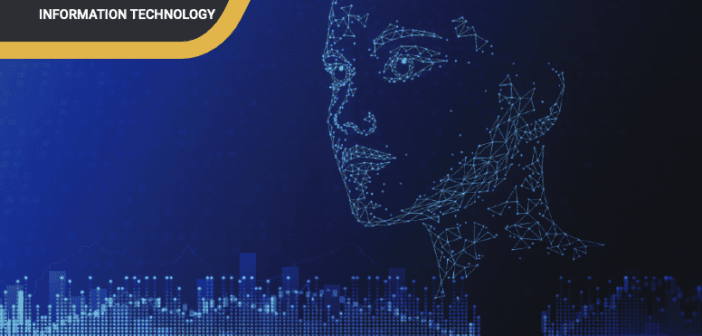By Derek Mutiso
Why Accountants Should Embrace the World of Programming
The narrative of coding, often confined to the realm of tech enthusiasts, is expanding its reach, inviting professionals from diverse fields to partake in its transformative potential. As coding transcends its conventional boundaries, its influence becomes not just a technological phenomenon but a cross-disciplinary force shaping the future of various professions.
The ascent of Artificial Intelligence (AI) has not only captivated technology enthusiasts but has also reignited interest in coding across diverse sectors. As AI technologies gain prominence, the demand for skilled individuals adept at navigating and contributing to this evolving landscape has surged.
Coding, serving as the foundational language for creating and optimizing AI algorithms, has become essential for professionals seeking to harness AI’s potential. This revived interest extends beyond the traditional technology sector, reaching various industries such as healthcare, finance, and manufacturing.
With AI applications advancing and providing innovative solutions, individuals with coding expertise are well-positioned to effectively leverage these technologies.
Is Coding Right For You?
Countless articles have been written in tech magazines about coding, and why it is an essential skill for EVERYONE to have. The problem with this “Coding for everyone” movement is that they assume the ultimate objective of learning to code is simply being able to write in a coding language. Nothing could be further from the truth. The end game for any coder should be to solve real-life problems.
A sizeable number of the people who identify as programmers are not proficient in coding. Even more concerning is the fact that some of them do not understand the precise nature of their role in the marketplace. Due to this fact, many web applications die a premature death because the creators are unable to successfully listen to the market and respond promptly to its needs as they evolve.
Ask any seasoned programmer, one who truly embodies the essence of the profession, and inquire about their perspective on code writing. They’ll likely tell you that a skilled programmer is one who adeptly avoids unnecessary lines of code. Rather than focusing solely on learning to code, the best programmers have managed to cultivate a problem-solving mindset.
Benefits of Learning to Code
www.accaglobal.com states that, “Every professional accountant may not need to code, but a basic understanding can add value to their organisation, help to differentiate them and open up future career opportunities.” Here are some other benefits you stand to gain from learning to code:
- It improves your ability to think critically and be creative: Learning to code develops your ability to think creatively and analyze problems from different viewpoints. It calls for project development and troubleshooting skills. These skills will prove useful in various areas of your day-to-day life. They will also come in handy when you are developing web applications and websites outside your workplace.
- Huge array of programming languages to pick from: There are hundreds of computer programming languages meant to perform a wide variety of tasks. Operating systems, software, games, websites, mobile applications, and more are created using a variety of languages.
The requirements of the project and one’s level of experience will determine which language to learn first. The main starting points for web developers are HTML, CSS, and JavaScript. People who work with databases and data analysis might start by studying SQL. All-purpose languages, like Python and C, are widely used in a wide range of applications and are thought to be simpler for beginners to learn.
- Diverse career options: Coders have employment opportunities, even outside the technology sector. Strong coding abilities are in high demand in the public sector (government and social services), healthcare, and education, even though cybersecurity and financial technology are expanding industries. Additionally, programmers are necessary for all kinds of non-profit organizations to assist them in achieving their objectives in solving a range of social issues.
Added expertise in industries, such as energy, agriculture, or telecommunications, makes coders highly sought after. Additionally, freelancing on projects for clients who post work on platforms like UpWork.com can be lucrative and fulfilling for those with an entrepreneurial spirit.
How to Start Your Coding Journey
The starting point would be to identify a suitable coding camp. These are usually online courses that are available on different websites. Coding boot camps typically follow a 12- or 24-week schedule, accommodating both full- and part-time students. Completion often results in a certification that enhances your resume and opens doors to new or improved career opportunities.
Coding, Web Development, and Programming
- Coding: It involves translating instructions from human language into the computer’s language. As machine language is expressed in binary code (0s and 1s), coders format their instructions to be accurately interpreted by the computer. Coding is a subset of programming.
- Programming: While coders convert human instructions into a language comprehensible to computers, computer programmers have a broader objective—creating a complete, functional software piece. They employ coding in planning, designing, testing, deploying, and maintaining the software.
- Web Development: Web developers focus on websites, using specific languages such as HTML, CSS, and JavaScript to ensure proper functionality. Developers and programmers typically work with different languages, although there may be some overlap in creating websites and applications.
Online Coding Bootcamps
Codecademy
Codecademy is an educational website providing interactive coding tutorials aimed at making programming accessible for beginners. It covers a range of languages such as HTML, CSS, JavaScript, Python, and Ruby, as well as those used in web development like PHP or Ruby on Rails. The platform, which offers both free and premium options, stands out for its hands-on learning approach through coding rather than traditional methods of reading or watching videos. Codecademy includes a discussion board for user interaction and covers specific languages like Swift for app development.
Coursera
One of the best places to learn to code is Coursera, which has more than 100 courses covering everything from Python and JavaScript to data analysis. The extensive course materials, which include lectures, homework, tests, and quizzes, let students move at their speed while keeping track of their progress.
Even though Coursera offers a ton of free courses, completing a paid course—which typically costs about $39—is frequently necessary to receive a certificate. The platform provides a seven-day free trial period to aid in decision-making. Coursera offers a variety of learning resources, including reading assignments, videos, activities, quizzes, and forums.
FreeCodeCamp
The non-profit organization freeCodeCamp is dedicated to providing computer science education to users of all ages. It emphasizes inclusivity for all irrespective of gender, color, religion, sexual orientation, economic status, physical ability, or prior knowledge, and offers free and open-source curricula and resources. The platform uses a project-based learning methodology in which every course consists of an instructional video, readings, assignments, and a practical coding project. Users who register are given a carefully selected selection of classes arranged according to their level of difficulty. The website offers self-paced courses.
Hadi and Ali Partovi founded Code.org in 2013, which is an excellent resource for teaching kids the basics of coding. The website provides courses covering functions, arrays, and variables—all of which are fundamental programming concepts.
Code.org
Code.org uses a variety of entertaining activities in and structured lessons to make learning interesting for kids. One such is the entertaining game “Guess My Number,” which is meant to assist children in practicing counting.
The course catalog is appropriate for students of any age or ability level, even though it is specifically designed for those who are just starting out and want to learn Python. As part of the learning process, students can drag blocks into the editing window in the courses because they use a block system.
As the digital landscape continues to evolve, accountants equipped with coding skills will not only navigate the challenges seamlessly but also contribute to innovative solutions and shape the future of their profession.
Learning to code is not just about mastering a language; it’s about embracing a problem-solving mindset that transcends the boundaries of traditional roles, opening doors to a world of possibilities.
The author is a business writer and project coordinator, Omeriye Foundation




